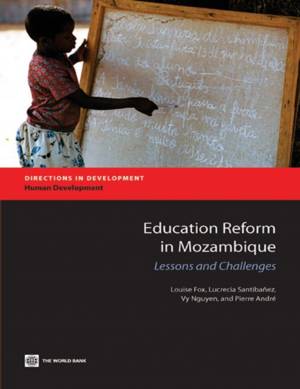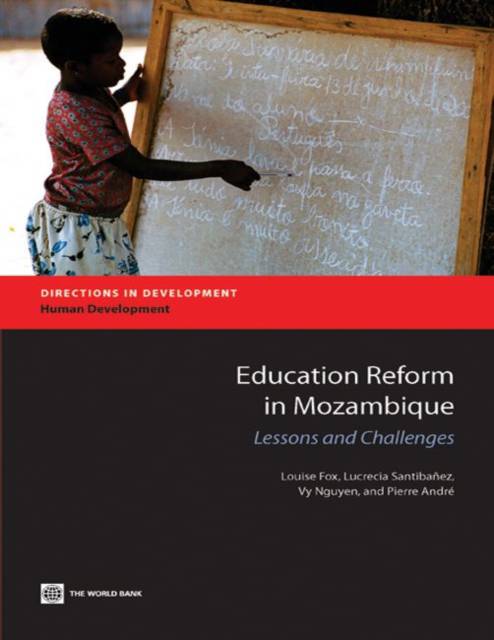
- Afhalen na 1 uur in een winkel met voorraad
- Gratis thuislevering in België vanaf € 30
- Ruim aanbod met 7 miljoen producten
- Afhalen na 1 uur in een winkel met voorraad
- Gratis thuislevering in België vanaf € 30
- Ruim aanbod met 7 miljoen producten
Zoeken
€ 44,45
+ 88 punten
Omschrijving
"Coming out of civil war, Mozambique had an enormous education deficit. In 199, five years after the peace treaty, 80 percent of the labor force reported to have no education at all, and school enrollment outside the large cities was miserable. Since then, Mozambique has come a long way in improving access to lower and upper primary through sustained investments in education infrastructure and introduction of important reforms. The primary education reform programs implemented in 2004, combined with a continuing program of school construction and teacher training, resulted in a 70% increase in enrollment in EP1 over 4 years with the highest gains for the poorest and most vulnerable children. Yet there was only a slight increase in student/teacher ratios. How did Mozambique do this, and what are the lessons going foward? The most important part of the reform appears to be the removal of the national school fee for primary level and the provision of free textbooks.
Specificaties
Betrokkenen
- Auteur(s):
- Uitgeverij:
Inhoud
- Aantal bladzijden:
- 118
- Taal:
- Engels
- Reeks:
Eigenschappen
- Productcode (EAN):
- 9780821389751
- Verschijningsdatum:
- 10/05/2012
- Uitvoering:
- Paperback
- Formaat:
- Trade paperback (VS)
- Afmetingen:
- 152 mm x 229 mm
- Gewicht:
- 172 g

Alleen bij Standaard Boekhandel
+ 88 punten op je klantenkaart van Standaard Boekhandel
Beoordelingen
We publiceren alleen reviews die voldoen aan de voorwaarden voor reviews. Bekijk onze voorwaarden voor reviews.








